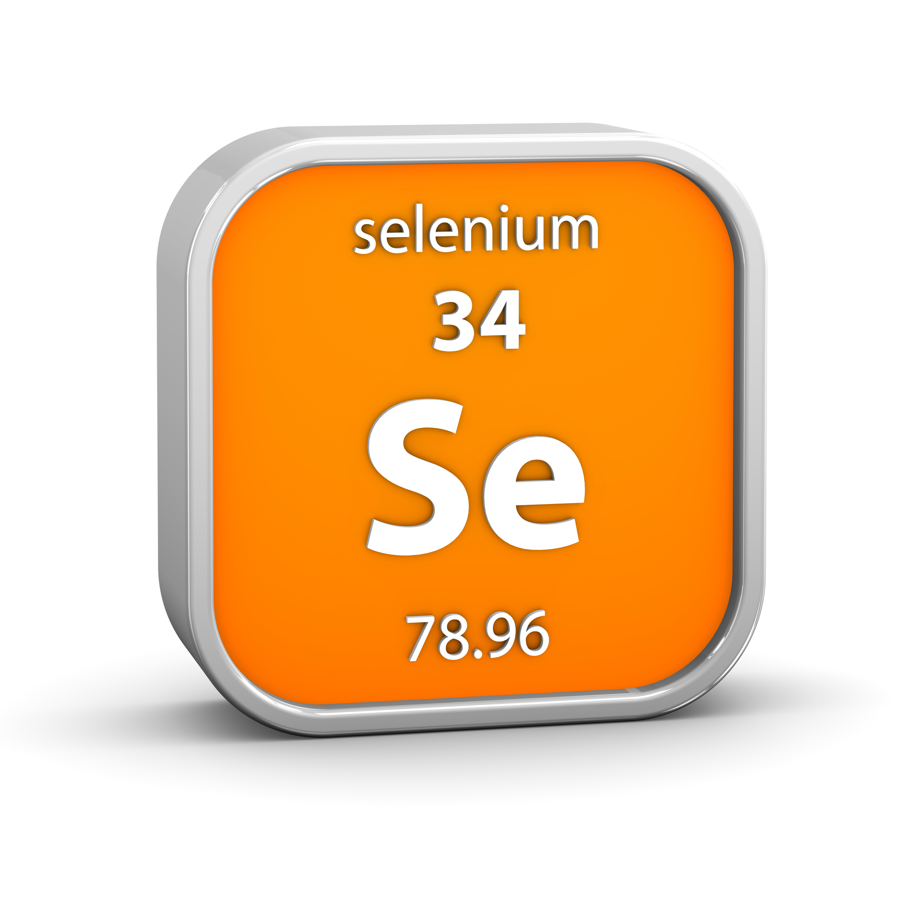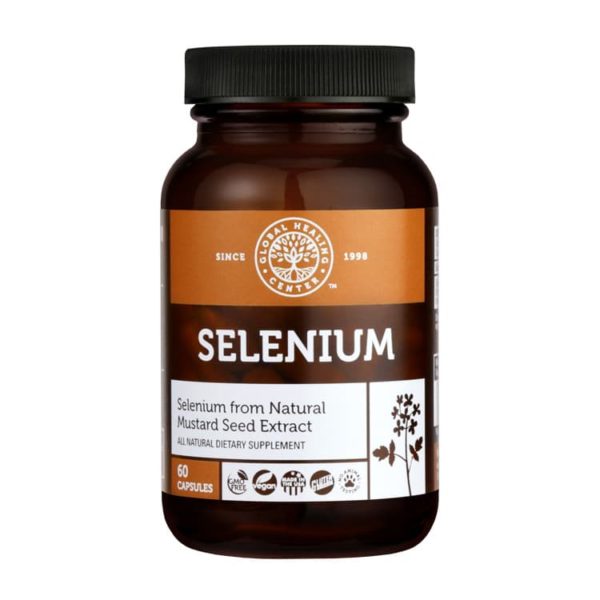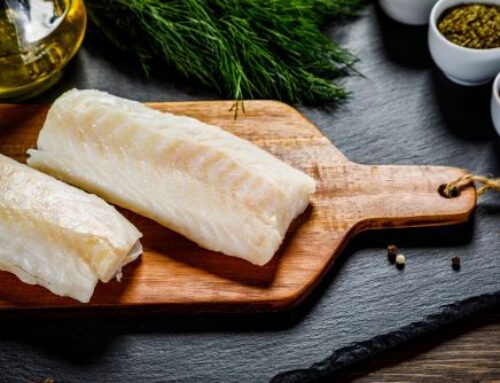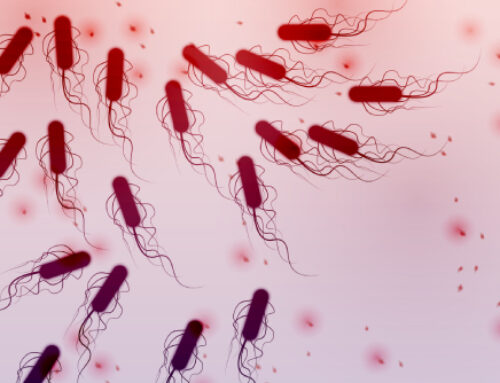The element selenium (Se) is a powerful antioxidant[1] and an important micronutrient that’s absolutely essential for human health.[2] Selenium deficiency is a problem that leads to a variety of serious health complications.[3, 4] Fortunately, many foods offer a sufficient amount of selenium; as a bonus, most of the best are vegetables and fruits.[5] It’s actually not that difficult to follow a diet that’s rich in plant-based selenium foods.
What Are Antioxidants?
Selenium is a powerful antioxidant. Antioxidants support good health in a number of ways, most notably by defending against the oxidative damage[6] caused by free radicals.[7]
Free radicals are byproducts of the body’s natural processes — left-over waste, essentially. But, they can also be introduced by artificial external sources like x-rays, smoking, and pollution. They’re dangerous because they damage cell structures and DNA. An overabundance of free radicals overwhelms the cells in the body and oxidative stress is the result.[8]
Oxidative stress is basically what causes the wear and tear on our bodies that we often describe as aging. Wear and tear on your body can lead to a variety of health concerns — cardiovascular disease, diabetes, Alzheimer’s, Parkinson’s, and eye problems, just to name a few. Antioxidants neutralize free radicals and counteract oxidative stress. Along with vitamins C and E, selenium is one of the most important antioxidants for the human body. Even better, that’s not the only benefit selenium offers.[5]
Selenium’s Role In Cellular Function
It’s important to realize that the systems within the human body have a hierarchical structure and cells are at the foundation. If the cells in your body have trouble, everything will have trouble. Selenium is a nutrient that plays an especially important role in human cell function. It strengthens and protects cell structure and supports cellular metabolism.[9]
As an antioxidant, selenium helps fight free radical damage and moderates reactive oxygen species (ROS), which cause cellular oxidative stress. Animal studies have shown that selenium supplementation helps lessen free radical damage and boosts immune system function.[10]
Researchers are discovering a myriad of positive health effects linked to selenium; it’s really quite remarkable.[11] One study found that mice fed a selenium-supplemented diet had significantly lower cell toxicity than those fed a standard diet.[12] More research is needed to absolutely confirm the relationship between selenium concentration and cell health in humans and, thanks to the preliminary findings, the ball is rolling.[9]
Selenium And Vitamin E
Vitamin E is an antioxidant; it’s available naturally in foods or as a supplement. It’s fat-soluble and helps neutralize the effects of fat oxidation. Selenium and vitamin E are ideal partners as they both protect cells from free radical damage[13] and support a healthy immune system.[14] When taken together, selenium and vitamin E combine and become a free radical-fighting powerhouse, each enhancing the antioxidant power of the other.[15]
The Positive Value That Selenium Provides
Selenium is an important nutrient and you need to pay attention and make sure you’re getting enough in your diet. Since the human body cannot produce selenium, it must be consumed from an external source. The daily requirement varies but, generally, an adult human requires a minimum of 55 micrograms per day. Women who are pregnant or breastfeeding require slightly more.[16]
Eating selenium-rich, plant-based foods is an excellent, simple way to meet your requirement. If that’s not your thing, find a supplement. There are plenty of selenium products on the market, but be aware that many are synthetic. A naturally-sourced selenium supplement is a great option and the next best thing to getting your selenium from vegetables. We recently released a high-quality, natural, carbon-bound selenium supplement made from organic mustard seeds and the feedback has been incredibly positive.
Do you take a selenium supplement? What’s it done for you? Leave a comment below and share your story with us.
If you’re looking for a supplement to improve your overall health, check out SELENIUM at the AlrightStore.
References (16)
- Imam, Syed Z., and Syed F. Ali. “Selenium, an Antioxidant, Attenuates Methamphetamine-induced Dopaminergic Toxicity and Peroxynitrite Generation.” Brain Research 855.1 (2000): 186-91. ScienceDirect. Web. 4 Apr. 2016.
- Carlson, Bradley A. et al. “Role of Selenium-Containing Proteins in T Cell and Macrophage Function.” The Proceedings of the Nutrition Society 69.3 (2010): 300–310. PMC. Web. 4 Apr. 2016.
- Tapiero, H., D.m Townsend, and K.d Tew. “The Antioxidant Role of Selenium and Seleno-compounds.” Biomedicine & Pharmacotherapy 57.3-4 (2003): 134-44. PubMed. Web. 4 Apr. 2016.
- Saito, Y., Y. Yoshida, T. Akazawa, K. Takahashi, and E. Niki. “Cell Death Caused by Selenium Deficiency and Protective Effect of Antioxidants.” Journal of Biological Chemistry 278.41 (2003): 39428-9434. Web. 4 Apr. 2016.
- “Antioxidants: In Depth.” National Center for Complementary and Integrative Health (NCCIH). U.S. Department of Health & Human Services, May 2010. Web. 04 Apr. 2016.
- “Antioxidants: MedlinePlus.” MedlinePlus. U.S. National Library of Medicine, 12 Jan. 2016. Web. 04 Apr. 2016.
- “Antioxidants and Cancer Prevention.” National Cancer Institute. U.S. Department of Health & Human Services, 16 Jan. 2014. Web. 04 Apr. 2016.
- Lobo, V. et al. “Free Radicals, Antioxidants and Functional Foods: Impact on Human Health.” Pharmacognosy Reviews 4.8 (2010): 118–126. PMC. Web. 5 Apr. 2016.
- Tinggi, Ujang. “Selenium: Its Role as Antioxidant in Human Health.” Environmental Health and Preventive Medicine 13.2 (2008): 102–108. PMC. Web. 4 Apr. 2016.
- Biller-Takahashi, Jaqueline D., Leonardo S. Takahashi, Fábio E. Mingatto, and Elisabeth C. Urbinati. “The Immune System Is Limited by Oxidative Stress: Dietary Selenium Promotes Optimal Antioxidative Status and Greatest Immune Defense in Pacu Piaractus Mesopotamicus.” Fish & Shellfish Immunology 47.1 (2015): 360-67. PubMed. Web. 4 Apr. 2016.
- Stolzoff, Michelle, and Thomas J. Webster. “Reducing Bone Cancer Cell Functions Using Selenium Nanocomposites.” Journal of Biomedical Materials Research Part A J. Biomed. Mater. Res. 104.2 (2015): 476-82.Wiley Online Library. Web. 4 Apr. 2016.
- Roy, M., L. Kiremidjian-Schumacher, H. I. Wishe, M. W. Cohen, and G. Stotzky. “Selenium and Immune Cell Functions. II. Effect on Lymphocyte-Mediated Cytotoxicity.” Experimental Biology and Medicine193.2 (1990): 143-48. PubMed. Web. 4 Apr. 2016.
- Johnson, Lesley J., Susan L. Meacham, and Laura J. Kruskall. “The Antioxidants-Vitamin C, Vitamin E, Selenium, and Carotenoids.” Journal of Agromedicine 9.1 (2003): 65-82. PubMed. Web. 4 Apr. 2016.
- Hoffmann, Peter R., and Marla J. Berry. “The Influence of Selenium on Immune Responses.” Molecular nutrition & food research 52.11 (2008): 1273–1280.PMC. Web. 4 Apr. 2016.
- Diplock, A. T. “The Nutritional and Metabolic Roles of Selenium and Vitamin E.” Proceedings of the Nutrition Society Proc. Nutr. Soc. 33.03 (1974): 315-22. Web.
- “Selenium: Dietary Supplement Fact Sheet.” National Institutes of Health. U.S. Department of Health &
†Results may vary. Information and statements made are for education purposes and are not intended to replace the advice of your doctor. Global Healing Center does not dispense medical advice, prescribe, or diagnose illness. The views and nutritional advice expressed by Global Healing Center are not intended to be a substitute for conventional medical service. If you have a severe medical condition or health concern, see your physician.






Leave A Comment